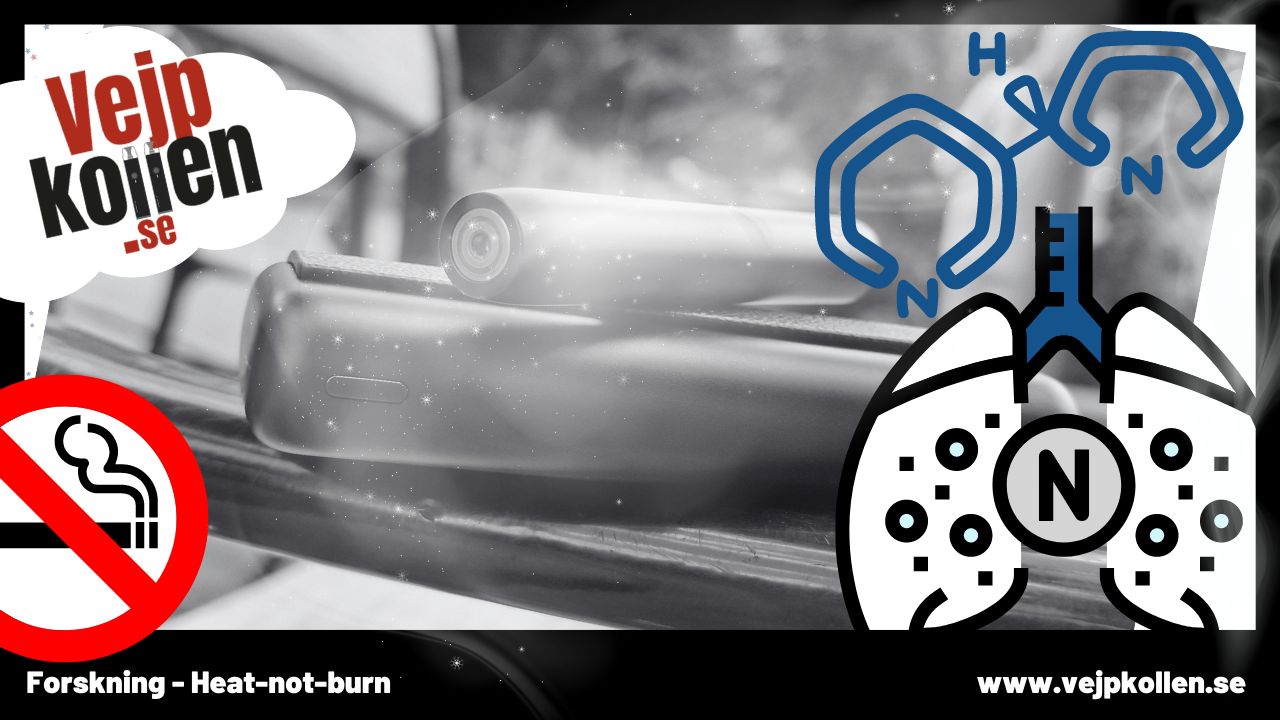Smokers can expect to reduce the risks associated with their nicotine use by switching from cigarettes to heated tobacco, known as heat-not-burn. In a recent study involving 224 participants, researchers measured significantly lower levels of several carcinogens in the vapour from heat-not-burn products compared to cigarette smoke.
Tobacco products that heat tobacco instead of burning it are controversial and still a relatively unexplored form of vejping. At least in terms of independent studies. But a study from an independent research institute in China now confirms that the heat-not-burn technology is likely to pose significantly fewer health risks compared to smoking traditional cigarettes.
Biomarkers are crucial
The study, conducted at the Shanghai New Tobacco Product Research Institute Co in China, involved 224 participants from four Chinese cities. The participants were smokers who were divided into two groups, with one group continuing to smoke and one group using only a heat-not-burn product. The results showed significant reductions in some exposure biomarker levels and confirm what previous industry research has shown. According to the researchers, heated tobacco should therefore be considered as a potentially less harmful alternative for smokers who have difficulty quitting nicotine.
Tobacco in an e-cigarette
HTPs are tobacco products that use heat, heated to around 350 degrees, instead of combustion (closer to 1000 degrees) to generate an aerosol (in the form of vapour) containing nicotine. Companies like Philip Morris, but also British American Tobacco, market HTP alongside regular cigarettes as a harm reduction alternative to smoking. PMI released its first version of the IQOS 2015 label.
Lack of independent studies
However, previous research indicates a complex picture of HTP's effects on health. According to a 2018 report, via the UK Public Health Agency 'may' HTPs: be safer than traditional cigarettes, but less safe than traditional e-cigarettes. At the same time, other studies have indicated similar levels of carcinogens as traditional cigarettes.
Despite the increased attention, research on HTPs is still lacking, according to the World Health Organisation (WHO) and others. Both short-term and long-term health effects are still relatively unknown.
Often industry-funded research
According to the WHO, claims of reduced risk of HTPs are often based on industry-funded research, which can have its own agenda. Health organisations have therefore called for independent studies to get an accurate picture of the health impact of these products.
Significantly lower risks
The Shanghai New Tobacco Product Research Institute compared the levels of nine so-called biomarkers known to increase the risk of various smoking-related diseases, including tobacco-specific nitrosamines and volatile organic compounds. The participants were smokers who switched from conventional cigarettes to HTP. The results showed that the levels of these biomarkers were 5.4 and 5.2 times higher in conventional cigarettes compared to HTP.
The team also found that the changes in biomarker levels were similar for both men and women.
Further studies needed
Like the WHO, the study highlights the importance of further research and discussion on alternative tobacco products, especially given the growing interest in HTP in China. More studies are needed to fully evaluate the long-term impact. Furthermore, the researchers emphasise the importance of continuing to monitor and regulate tobacco products to ensure that they present a real health benefit to smokers. They also argue that the benefits should be weighed against the risks of a new generation of nicotine users using new nicotine products.
The researchers behind the study do not disclose any links to the tobacco industry. However, the Shanghai New Tobacco Product Research Institute is an independent organisation that specialises in testing new nicotine products.
At the next decisive meeting of the Convention on Tobacco Control (COP10) in February 2024, WHO Parties are expected to decide whether Heat-not-Burn products, along with e-cigarettes and snus/nicotine pouches, should be regulated as strictly as traditional cigarettes.




